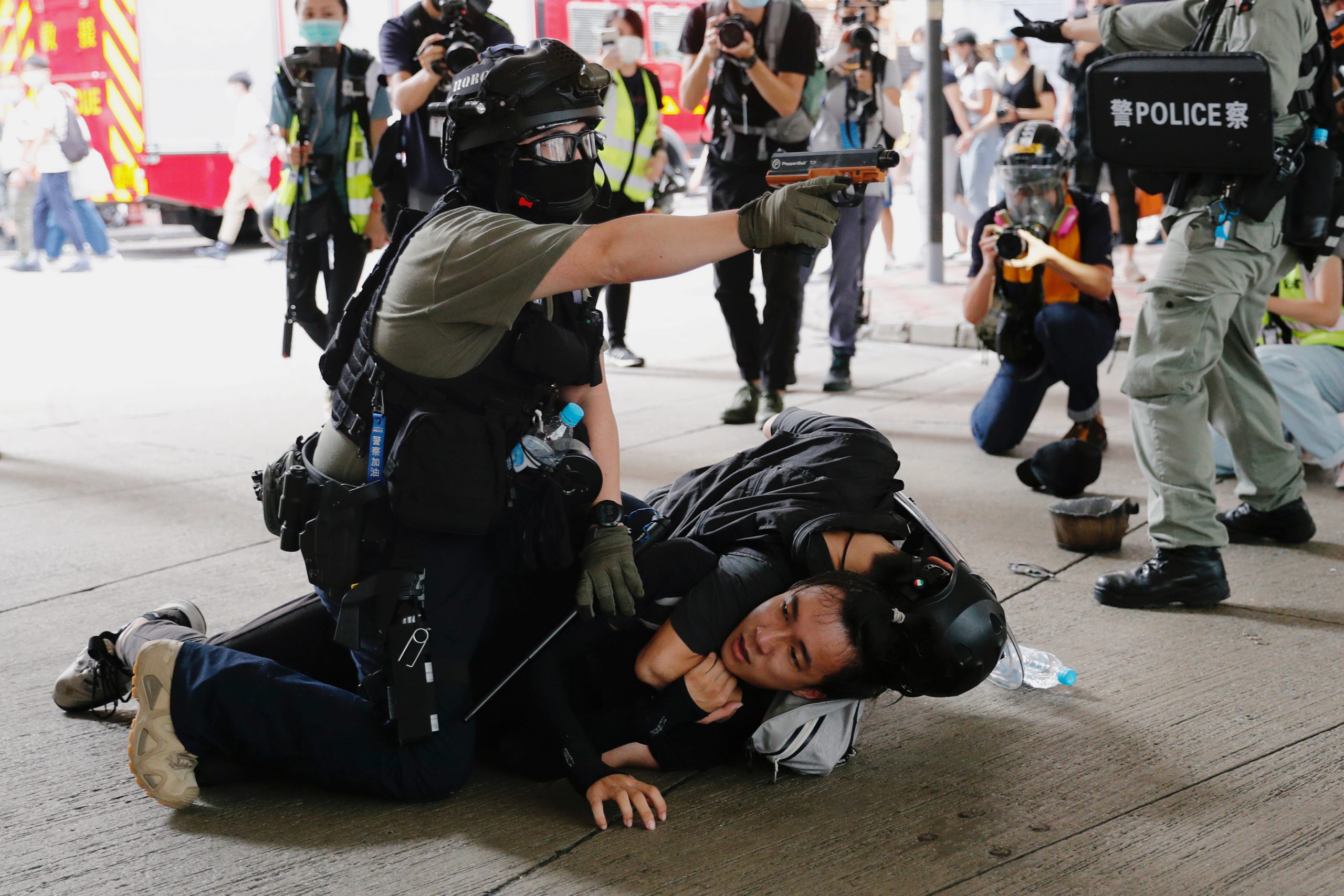
Madeline Sponsler, FISM News
[elfsight_social_share_buttons id=”1″]
Hong Kong police fired water cannon and tear gas and arrested more than 300 people as protesters took to the streets in defiance of sweeping security legislation introduced by China to snuff out dissent.
Beijing unveiled the details of the much-anticipated law late on Tuesday after weeks of uncertainty, pushing China’s freest city and one of the world’s most brilliant financial hubs on to a more authoritarian path.
As thousands of protesters gathered for an annual rally marking the anniversary of the former British colony’s handover to China in 1997, riot police used pepper spray and fired pellets as they made arrests after crowds spilled into the streets chanting “resist till the end” and “Hong Kong independence”.
Police said they had made more than 300 arrests for illegal assembly and other offenses, with nine involving violations of the new law. The law punishes crimes of secession, subversion, terrorism, and collusion with foreign forces with up to life in prison will see mainland security agencies in Hong Kong for the first time and allows extradition to the mainland for trial.
China’s parliament adopted the law in response to protests last year triggered by fears that Beijing was stifling the city’s freedoms, guaranteed by a “one country, two systems” formula agreed when it returned to Chinese rule. Beijing denies the accusation. Authorities in Beijing and Hong Kong have repeatedly said the legislation is aimed at a few “troublemakers” and will not affect rights and freedoms, nor investors’ interests.
Speaking at a flag-raising ceremony to mark the handover, the city’s Beijing-backed leader, Carrie Lam said this move is a “inevitable and prompt decision to restore stability,”. At this same event, the last colonial governor, Chris Patten, a staunch critic of the security law, tearfully handed back Hong Kong to China.
Critics of this law fear it will end the pro-democracy opposition and crush freedoms, including an independent legal system and right to protest, that are seen as key to Hong Kong‘s success as a financial center.
U.S. Secretary of State Mike Pompeo said the new law was an affront to all nations and Washington would continue to implement President Donald Trump’s directive to end the territory’s special status.
Britain said it would stand by its word and offer all those in Hong Kong with British National Overseas status a “bespoke” immigration route.
Britain and Canada also updated their travel advisories for Hong Kong, saying there was an increased risk of detention.
Sourced from FISM News, Reuters
